QuestionI've had my betta fish, neville for about a year and a half and he's always seemed completely healthy. I washed his tank yesterday and i've now noticed that he's been floating and one side seems to tilt to the surface more than the other. If he tries to swim down to the bottom of the tank, his back end just floats him back to the top. I've researched and I think he has swim bladder problems, or air bladder disease. Is there anything i can do for him? Should I change his diet? he's been eating the same hikari betta bio gold baby pellets all the time I've had him, and this is the first time he's ever looked unhealthy.
AnswerHi Joanna,
Bio-gold pellets are supposed to be completely nutritious, but I still recommend other foods - if nothing else, to provide fiber and roughage. Here's a list of a few foods that contain fiber and/or moisture, which should help your betta pass intestinal blockages:
* frozen brine shrimp or daphnia
* frozen bloodworms (these are a betta's favorite!)
* cooked pea innard (you can use canned, unsalted, or frozen)
* piece of canned green bean, again, no salt
Freeze dried foods, while convenient, are not going to help much. An excess of dried foods lead to constipation. A single flat pack of frozen food will probably last your betta a lifetime!
Another thing to try is adding Epsom salt to the water. Only Epsom salt (magnesium sulfate) will work, other kinds of salt (sodium chloride) will actually do more harm than good when your betta is bloated. 1/4 teaspoon per gallon is the recommended dose of Epsom salt, dissolve it in warm water first for best results. If you see no improvement, you can add another dose in a couple of days. I would be doing ample water changes weekly right now, about 75% or so. Make sure the new water is the same temperature and has dechlorinator.
One last thing to do is test - with a water test kit, either strips or liquid - the water quality/chemistry. Here's how your tests should read...if you see any deviations from this, that's a red flag:
* ammonia - 0 ppm
* nitrite - 0 ppm
* nitrAte - <20 ppm
* pH - same as your tap water, or very close
* alkalinity - "
* hardness - "
So the important thing is NEVER to see any ammonia or nitrite, this is never present in a tank that is healthy and established. Nitrates should not be too high, if they are, water changes will bring them down. And the chemistry of the water - pH, alkalinity, and hardness - should be the same as your tap, roughly. All aquariums tend to become acidic with time, but frequent water changes prevent this.
All in all, you've done a fine job keeping your betta alive and healthy this long. One and a half years is rather old for a betta, they live anywhere from 1-2 years on average. So pat yourself on the back (!) and don't be too surprised if he doesn't live an awful lot longer. Bettas are basically annual fish, like killifish.
For more betta care information, check out this site:
http://www.bettatalk.com
I hope that helps, take care!
Nicole

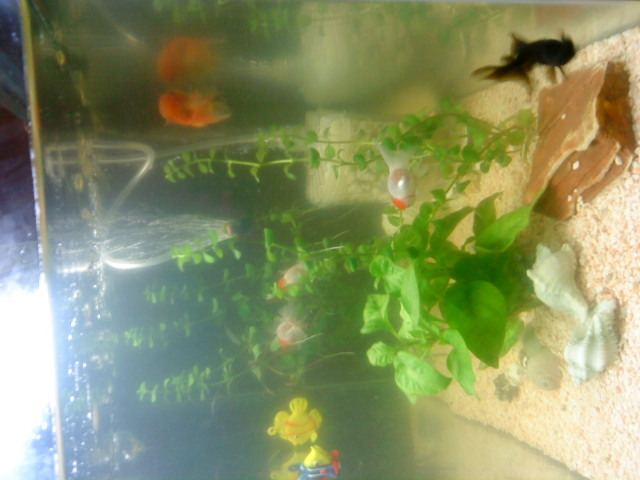 compatibility
Question
fish027
Hi Susan I have a 50litre tank
compatibility
Question
fish027
Hi Susan I have a 50litre tank
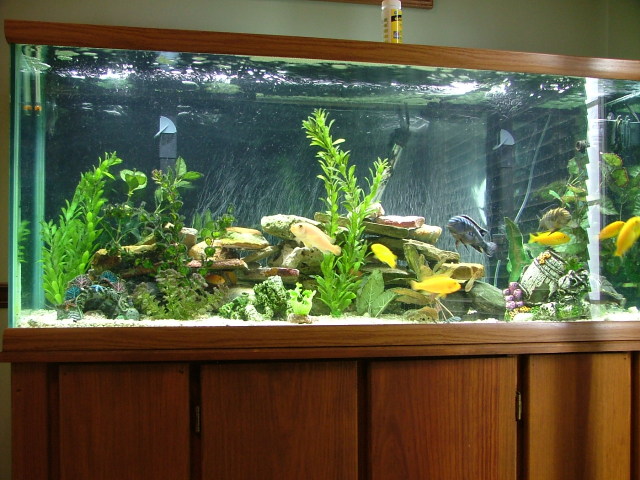 African Cichlids just moved tank and am paranoid!
Question
75 gal malawi tank
hello,
Ive kept fish for ye
African Cichlids just moved tank and am paranoid!
Question
75 gal malawi tank
hello,
Ive kept fish for ye
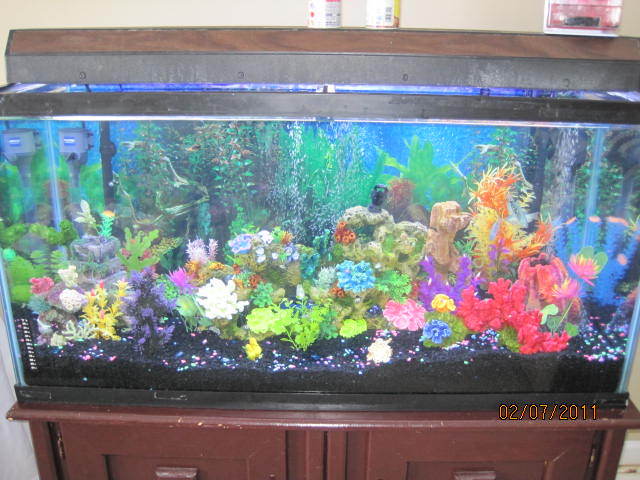 high PH levels
Question
Our 90 Gallon Tank
We recently set up at 90 ga
high PH levels
Question
Our 90 Gallon Tank
We recently set up at 90 ga
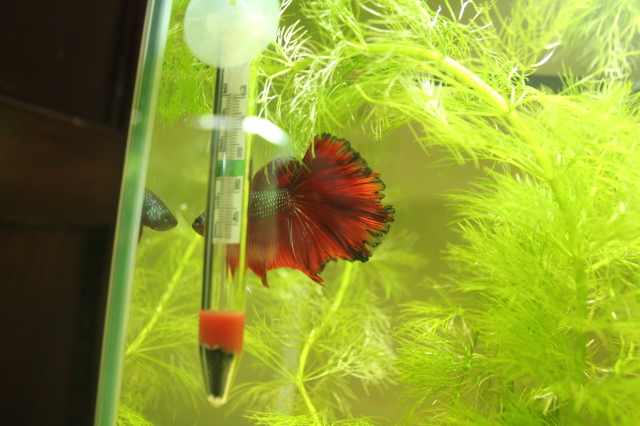 Melafix
QuestionHis back fin
QUESTION: Hi,
Its alex aga
Melafix
QuestionHis back fin
QUESTION: Hi,
Its alex aga
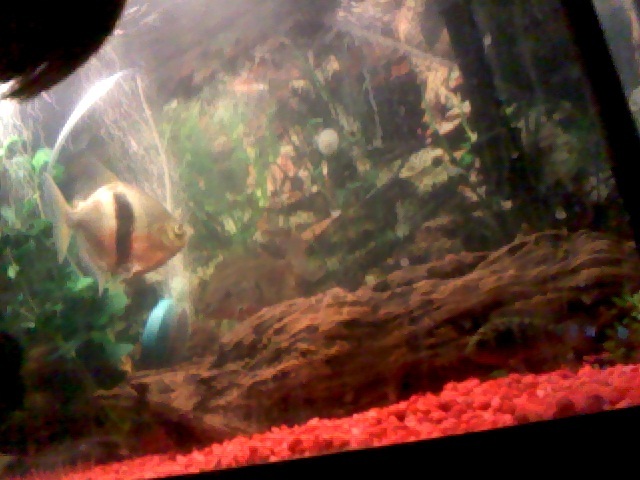 Jack dempsey
Question
my jack dempsey
Hello recently bought a 1 inch
Jack dempsey
Question
my jack dempsey
Hello recently bought a 1 inch